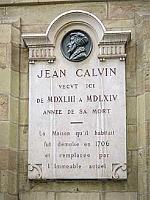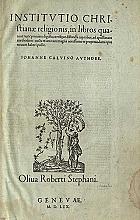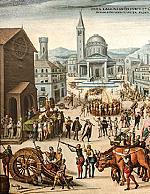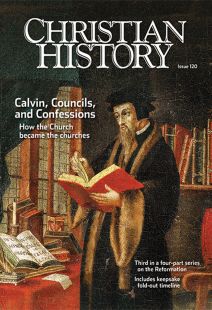Editor's note: Calvin, councils, and confessions
WHY DO YOU GO to the church you go to? The preaching? The music? The children’s program? Because your next-door neighbor does? As our last two issues devoted to the Reformation have explored, sixteenth-century reformers set out to renew the church and ended up dividing it. Even so, they might be surprised today that we sometimes change denominations as quickly as we change favorite flavors of ice cream. How did this happen?
With this third issue in our Reformation series, we begin to answer that question as we explore what scholars call “confessionalization.” As the mid-sixteenth century arrived, followers of Luther, followers of Zwingli, Christians in England, and followers of the Anabaptist way all began to sort themselves out into various more- or-less defined confessions. Hopes for reunion or at least cooperation with the Roman Catholic Church, which some had cherished, receded further into the background. Division became the order of the day.
Calvin the refugee
Onto that mid-century stage stepped a man whose name, like Luther’s, has echoed through the centuries as giving voice to an entire developing strand of Christian faith. He was a hopeful French priest turned reluctant lawyer turned, after a fateful stopover in the city of Geneva, Protestant pastor and Swiss reformer. At birth his name was Jean Cauvin. History knows him as John Calvin.
Order Christian History #120: Calvin, Councils, and Confessions in print.
Subscribe now to get future print issues in your mailbox (donation requested but not required).
As with our preceding issues, we focus on a colorful cast of sixteenth-century characters, continued theological debates, roads taken and not taken, and tragic martyrdoms. We’ve also got a special bonus pull-out timeline with the entire sixteenth century on it. (And some other goodies! Check it out on pp. 27–31. You can also buy copies of it separately.)
We’ll conclude the story of reform in 2017 by talking about the reformers who arose in Catholic ranks and never left; telling the story of the calling of the Council of Trent that would shape Catholicism for the next 500 years; and outlining the tumultuous sixteenth century’s final decades.
Almost every time I write you I say, “I learned so much.” This issue is no exception: from the story of Calvin’s life in the French and Genevan reformations and his long-delayed, tragically brief marriage, to the fights among Luther’s spiritual successors, to the way refugees shaped changing religious tides all over Europe.
When we began this project and its corresponding video, This Changed Everything (see ad, pp. 56–57), we were motivated by the idea that “getting the Reformation right” (to play off the title of one of my favorite books about the movement, James Payton’s Getting the Reformation Wrong) would help all of us learn how we got where we are today and how we can cooperate with other Christians—across, and maybe even beyond, the confessional lines that divide us.
Now that I’ve spent three issues in the sixteenth century, I think so more than ever. In collecting quotes for our reformer quote-fest on p. 32, I ran across this gem from Menno Simons: “True evangelical faith is of such a nature it cannot lie dormant, but spreads itself out in all kinds of righteousness and fruits of love.” May it be so. CH
This article is from Christian History magazine #120 Calvin, Councils, and Confessions. Read it in context here!
Christian History’s 2015–2017 four-part Reformation series is available as a four-pack. This set includes issue #115 Luther Leads the Way; issue #118 The People’s Reformation; issue #120 Calvin, Councils, and Confessions; and issue#122 The Catholic Reformation. Get your set today. These also make good gifts.
By Jennifer Woodruff Tait
[Christian History originally published this article in Christian History Issue #120 in 2016]
Next articles
United with Christ in eternity and at the table
Calvin’s influential thoughts on predestination and the Lord’s Supper
Raymond A. BlacketerWords to ponder from Calvin’s Institutes
Man never attains to a true self-knowledge until he has contemplated the face of God
John CalvinA faith that could not be contained
How Reformed Christians spread across a continent
Jennifer Powell McNuttSupport us
Christian History Institute (CHI) is a non-profit Pennsylvania corporation founded in 1982. Your donations support the continuation of this ministry
Donate








